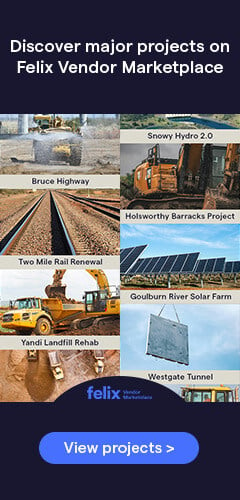The relationship between equipment hirers and suppliers go beyond the signed contract. Project managers have the responsibility to nurture their organisation’s relationship with their plant or equipment suppliers since this will help in the timely completion of a construction project and a good relationship between the two parties could help reduce the risks of a misunderstanding.
Managing external equipment or plant hire can be a handful at times since it’s another added team to manage, but it can be easily done with strategic efforts from project managers and their internal team.
So how can you effectively manage an external hire? Here are a few quick tips to help you out.
1. Communication
As project managers, you have to have an open line of communication between you and your external team. Make sure that your external team are all across the scope of the project, and any other pertinent details. You have to give them sufficient information and knowledge about the project they are about to engage in, just as you would for your internal team. Having an open line of communication will also reduce the risks of committing mistakes on their part.

2. Trust
Hiring plant and equipment from an external source mean that you are not familiar with the people on their team. It might take some time to fully adjust and trust them, but it is necessary to do so. Giving your trust to your external team will boost their morale which, in turn, will increase their productivity. Trusting your external team will make them feel more “at home” while working on the job site, and feeling comfortable will make them more confident in what they are doing.
Just as you would praise your internal team for a job well done, your externally hired team also need that boost. Give your hired excavator’s operator a pat on the back every once in a while to let them know that they have been doing a great job on your project.
3. Nurturing the relationship
Take care of your outsourced team just as you would take care of your in-house team. Workers who are cared for by their employers perform their work better and are more efficient. But it’s not just the workers on your site that you have to build a relationship with. You also have to nurture your relationship with the organisation which you hired them from – the plant and equipment suppliers’ company. Having a good relationship with your suppliers has its benefits; such as discounts when you decide to hire from them again, and a guarantee that your project is in good hands.Remember, the external team is an extension of your in-house team, so treat them as if they were your own.
Make sure you cover all issues, concerns and added information on your toolbox talk with your entire construction team – including your external team – to ensure that they are all across what is happening to the project they are working on.
Download and customise the Toolbox Talk Agenda we have created to ensure that you have everything covered for your next team meeting.
Post updated in November 2024

Related Articles

7 strategies to turn construction downtime to uptime
It's a no-brainer for construction companies to work to improve their uptime. So what does this mean exactly? Simply put, uptime is the time that your machine or team is in operation. Downtime, on the other hand, is the time that your equipment or team are not working.

Win more jobs by improving client communication
The most common reason for construction disputes is a breach in communication and expectations. We cannot overstress the role of communication in a construction project. A construction project has an enormous number of “moving parts”: A successful project demands that the professionals involved are experienced, appropriate, have the same mind-set, are team players with complimentary skill sets–and that they are managed to bring out their best work to meet the vision and goals of the project.

3 tips to becoming a high-margin contractor
What would an average day in your job look like? Do you spend most of the day calling subcontractors and suppliers and visting jobsites? Or are you more likely to be scheduling, pricing bids, telling supervisors what to do, or making sure that all deliveries are made? Most construction business owners and managers work hard on tasks but don't focus on what truly helps to make their companies better. It's time to decide if your activities help improve your margins, find better customers, win better contracts or move you toward achieving your overall goals.
Get the latest project news
- updates on Australia's pipeline of state and federal projects
- fresh contract awards from major contractors and builders
If you're looking to contact us about other matters, please contact us.



